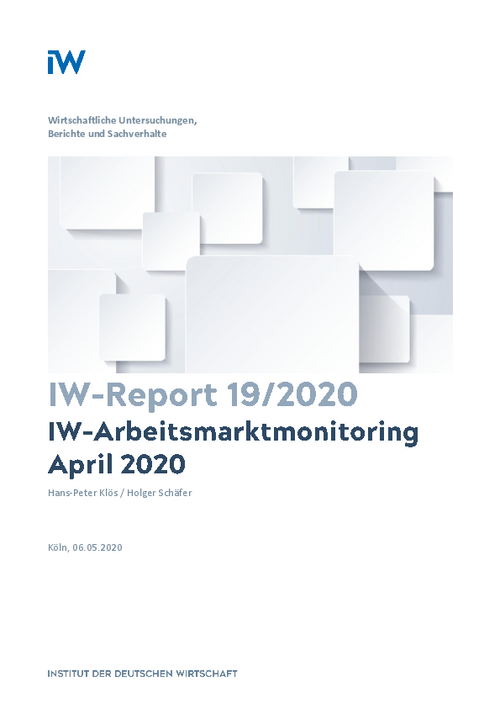As expected, firms react to the sudden drop in their demand for labour with a chain of different policies. The statistics show a severe decrease in hirings.

IW Labour Market Monitoring April 2020
IW-Report

As expected, firms react to the sudden drop in their demand for labour with a chain of different policies. The statistics show a severe decrease in hirings.
Therefore, people outside the labour market have a difficult time finding new jobs. In addition, short time work is used widespread as an instrument of internal numerical flexibility. The number of short time workers will be much higher than in the 2009 crisis. While the number of layoffs increases, it remains on a low level compared to short time work or layoffs in other countries. As a result, unemployment is rising somewhat moderately.
To alleviate the labour market effects of the current crisis, the legislator has introduced various de-regulations in the working time law. This could be a social experiment that encompasses the opportunity to gain more insights into the controversial working time debate by means of thorough evaluation.

Hans-Peter Klös / Holger Schäfer: IW-Arbeitsmarktmonitoring April 2020
IW-Report

More on the topic

Determinants of personnel planning in Germany
The German labor market has been growing since 2005. The dip in the wake of the coronavirus pandemic between 2020 and 2022 is an exception, as the German labor market has reached a record level of 45.9 million people in employment by 2023.
IW
What factors influence the career ambitions of people with disabilities?
Many companies in Germany report having difficulties not only in recruiting employees, but also in filling vacant management positions.
IW